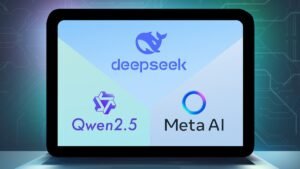Meta Starts Testing Its First Custom AI Training Chip

Meta’s Groundbreaking AI Training Chips: What You Need to Know
Meta, the tech giant behind Facebook, Instagram, and WhatsApp, has recently announced the commencement of tests for its first in-house AI training chips. This move is seen as a significant step towards enhancing the company’s capabilities in artificial intelligence (AI).
What Are AI Training Chips?
AI training chips are specialized hardware designed to speed up the processing of machine learning tasks. These chips process vast amounts of data more efficiently than standard processors, enabling faster training of AI models. As AI technology continues to grow, the need for more powerful and efficient chips becomes increasingly crucial.
Why Is This Development Important?
The shift towards developing in-house chips is noteworthy for several reasons:
- Cost Efficiency: By creating their own chips, Meta can potentially reduce reliance on third-party suppliers, reducing costs in the long term.
- Performance Optimization: In-house designs allow Meta to tailor the chips specifically for its needs, enhancing performance and energy efficiency for their AI applications.
- Competitive Edge: As tech companies compete in the AI space, having custom chips can provide a significant advantage in developing new technologies faster and more effectively.
How Meta Plans to Use These Chips
Meta’s new AI training chips will likely be employed across various applications, including:
- Content Recommendations: Enhancing algorithms that suggest posts, products, or ads based on user interaction.
- Image and Video Processing: Improving processing capabilities for augmented reality (AR) and virtual reality (VR) applications, which are key areas of interest for Meta.
- Natural Language Processing: Refining capabilities related to understanding and generating human language, crucial for platforms like Facebook Messenger and WhatsApp.
The Broader Context of AI Hardware Development
The move by Meta aligns with a broader trend in the tech industry where major players, including Google and Amazon, are designing their own AI chips. This trend underscores a growing recognition that custom hardware can significantly influence the pace and capabilities of AI development.
What Are the Challenges Ahead?
While prospective benefits are compelling, Meta will face several challenges as it moves forward with its chip development:
- Technical Hurdles: Designing high-performance chips is a complex task that requires significant expertise and resources.
- Installation and Adoption: Integrating new chips into existing systems and workflows may pose logistical challenges.
- Competitive Landscape: Major competitors like Nvidia and Intel already have a strong foothold in the market, which means Meta must offer compelling improvements to gain traction.
What Do Experts Say?
Tech industry analysts believe that Meta’s venture into AI chip development is a bold and necessary step. Experts note that custom-built chips can allow for unprecedented performance tuning that generic hardware cannot match. Many suggest that it could lead to more advanced AI capabilities in user experiences across Meta’s platforms.
Future Implications for Users
For everyday users of Meta’s platforms, these advancements could lead to improved experiences. Enhanced algorithms may provide:
- More Relevant Content: Users could see more tailored posts and advertisements, making their online experiences more engaging.
- Faster Loading Times: Improved processing capabilities may lead to quicker response times across apps.
- Innovative Features: Advances in AI might enable new functionalities, particularly in AR and VR, as Meta continues to invest heavily in these areas.
The testing of in-house AI training chips signifies a pivotal moment for Meta as it seeks to redefine its place in the rapidly evolving tech landscape. By investing in custom AI solutions, Meta is positioning itself at the forefront of AI innovation.





